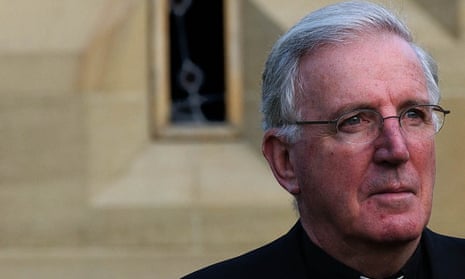The former Archbishop of Westminster has admitted he was wrong not to insist Catholic schools run by abbots adopt the recommendations of a report on child abuse in the church.
Cardinal Cormac Murphy-O’Connor said he did not ensure that Benedictine schools accepted the measures set out in the report because bishops do not have authority over abbots.
Some of the most famous Catholic schools in the country, including Downside in Somerset and St Benedict’s in west London, have been embroiled in abuse scandals in recent years.
The Nolan report, commissioned by Murphy-O’Connor and published in 2001, made more than 70 recommendations and is credited with changing the nature of how the Catholic church in the UK deals with abuse.
Speaking at the Hay festival in Wales, Murphy-O’Connor said he should have made sure the report’s recommendations were adopted by monastic schools and regretted they were not. “I must have thought abbots could manage themselves,” he said.
Murphy-O’Connor also admitted he did not understand the damage done to victims of child abuse or the nature of paedophilia when he allowed a sex offender to continue working in the early 1980s.
The cardinal removed Michael Hill from his post as parish priest but appointed him as an airport chaplain, giving him the chance to abuse again. Murphy-O’Connor said, if the same situation arose now, Hill would be reported to police and social services.
“Then, I don’t think bishops did that. I don’t think we were aware of the addictive nature of paedophilia or the terrible damage done to a victim.”
He said it was to his “shame” that he made the “grave mistake” of sending Hill to work as an airport chaplain.
During a wide-ranging talk, Murphy-O’Connor said he was “haunted” by the case of conjoined twins who were the subject of a much-publicised high court battle in 2000. He spoke out against an operation that could have saved one but would have killed the other twin.
Despite Murphy-O’Connor’s stance, the operation took place and the cardinal described later visiting the surviving twin and her family on the island of Gozo. He said the mother was “glad” to have the child.
Asked about the Catholic church’s stance on women priests, he said: “Ever since the time of the Lord, priests have always been men.” He added that two or three popes had said they did not have the authority to change what has been a constant tradition.
The cardinal, who is promoting his memoir An English Spring, said he hoped Ireland would vote against gay marriage in the referendum. “The heart of the structure in our country is the family,” he said. “The more the family breaks down in different ways, the less we have a healthy community. The greatest evil is the breakdown of family life in our country.”
He also admitted he had dreamed up names he would adopt if he was made pope. He had toyed with Gregory or Adrian – the name of the only English pope: “In the middle of the night I woke up and thought: ‘What about Cormac I,’” he said.
